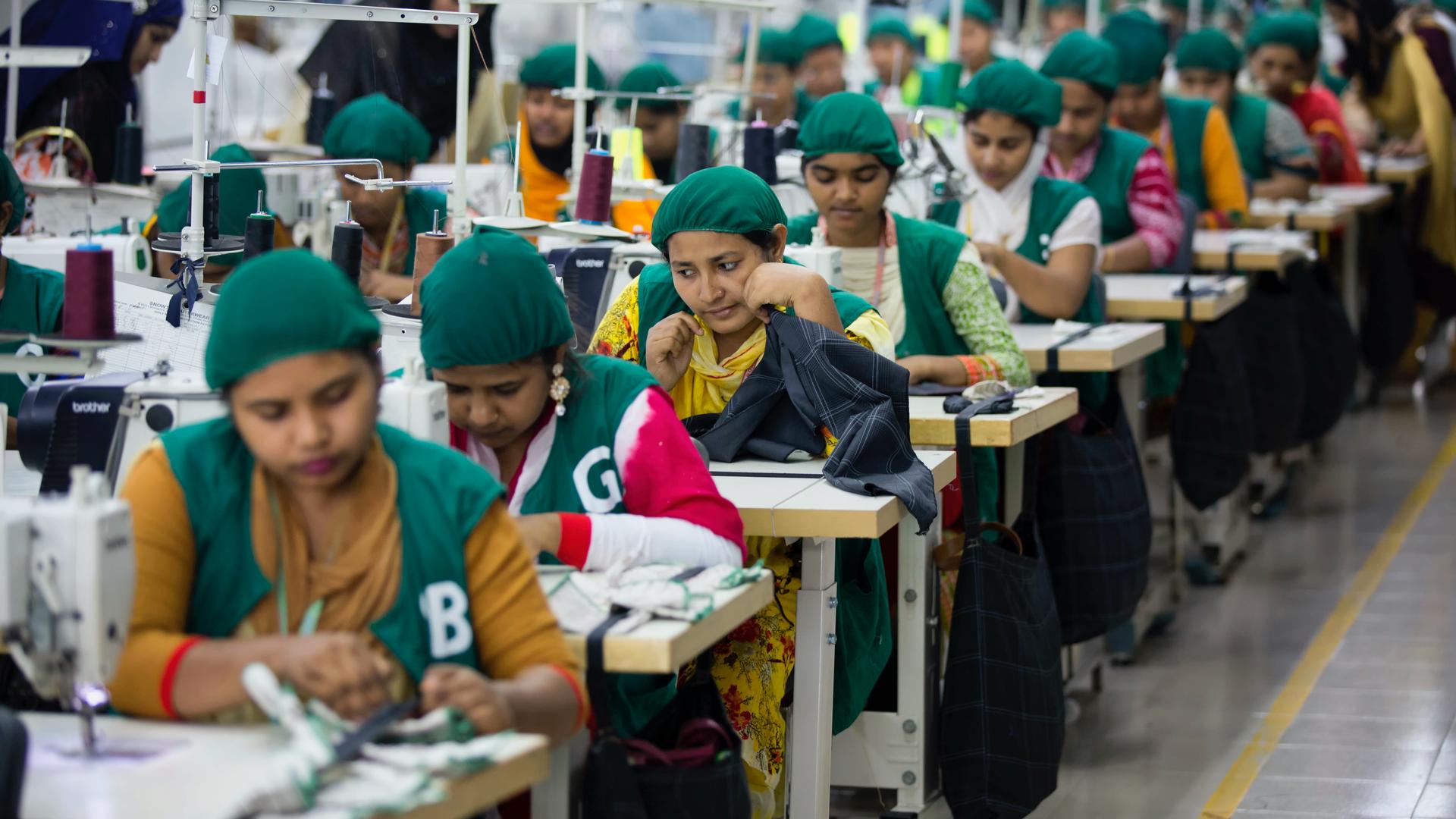The Accord on Building and Fire Safety in Bangladesh, which was established in 2013 following the deadliest garment industry accident in the world, was set to expire on Monday.
But in a last-minute move, the parties involved — including brands, retailers and unions — agreed to a tentative agreement and extended negotiations for three more months for the accord that is aimed at protecting garment workers’ safety in Bangladesh.
“The three months’ extension is just a respite, it maintains the status quo, but the issue is just postponed, not solved.”
“The three months’ extension is just a respite, it maintains the status quo, but the issue is just postponed, not solved,” said Kalpona Akter, president of the Bangladesh Garment and Industrial Workers Federation, via WhatsApp.
Her union represents some 150,000 garment workers across Bangladesh.
Related: How floating homes will help people in flood-prone countries
Kalpona Akter said eight brands are willing to support a new binding agreement, and she and other activists hope more brands will “see reason in the next three months.”
She said the union fears that if the accord does eventually expire, it will become nearly impossible to hold accountable brands and retailers that operate in Bangladesh.
“If that doesn’t happen, the pre-Rana situation of self-monitoring returns,” Kalpona Akter said.
It’s been eight years since the Rana Plaza building in the Bangladeshi capital Dhaka collapsed on April 24, killing more than 1,100 people and injuring some 2,500 others. The eight-floor building housed five garment factories owned by brands throughout Europe and North America.
Related: A climate migration crisis is escalating in Bangladesh
The accident shook Bangladesh’s $34 billion garment industry. The South Asian country is the second-largest garment exporter in the world, behind China and, according to the World Bank, the industry employs more than 4 million Bangladeshis — mostly women.
Sonya Akter — who is of no relation to Kalpona Akter — was on the sixth floor of Rana Plaza, operating a sewing machine, the day the building collapsed. Her leg was injured, and it took 36 hours to rescue her from the rubble.
Through a translator, Sonya Akter, who is now 22 and currently lives in the northern Bangladeshi village of Damodarpur, said that her leg had to be amputated and she hasn’t been able to work since — and that she remains traumatized.
Whenever Sonya Akter sees a multi-story building, she said, she gets nervous.
A committee, appointed by the Bangladeshi government, concluded that poor construction and overly-heavy equipment were to blame for the accident. More than 40 people have been charged with murder in connection with the collapse, including the building’s owner, but the cases have been slow to move forward.
Related: Bangladesh garment workers re-up protest after meager pay raise
The accident brought worldwide scrutiny to the industry, and the Accord on Fire and Safety in Bangladesh was signed later in 2013.
“The reason we wanted to have an accord, especially a legally binding agreement, [is] because we see that self-monitoring has failed to make our workers’ lives safer.”
“The reason we wanted to have an accord, especially a legally binding agreement, [is] because we see that self-monitoring has failed to make our workers’ lives safer,” Kalpona Akter said.
The accord has been signed by brands such as American Eagle Outfitters, H&M and Hugo Boss. It held these brands accountable by creating an independent factory inspection program, and forcing more industry transparency, by requiring the posting of practically all of its work online.
Kalpona Akter said the initiative also gave unions and workers “phenomenal” and unprecedented involvement in making their industry safer.
Since 2013, hundreds of factories across Bangladesh have been inspected, and hundreds have remedied workplace hazards — such as fixing faulty wiring systems, installing fire doors and correcting structural problems. If brands don’t comply, they could wind up in court.
“So, there are many workers who believe that the accord saved their lives,” Kalpona Aktar said. “If the accord leaves, they fear they will no longer be safe working in the factory.”
Yet, the initiative was set up to be temporary.
Related: UN compact recognizes climate change as driver of migration for first time
Christie Miedema, campaign and outreach coordinator with the Amsterdam-based Clean Clothes Campaign, a witness signatory to the accord, said she’s been watching the negotiations closely.
“What we hear from brands is that they want to backtrack on the whole idea of a binding agreement and individual legal accountability of brands.”
“What we hear from brands is that they want to backtrack on the whole idea of a binding agreement and individual legal accountability of brands,” she said.
Many brands have long been opposed to the potential legal liability that the accord opens them up to, as well as the idea of a third-party monitoring system. Recognizable brands such as Walmart Inc, The Gap, Inc. and JanSport, among others, have cited these concerns and others as the reasons they never signed on to the accord.
If the brands get their way, the unions will pull out of the accord, too, Miedema said, “because they say if there is nothing to compel brands to do what they have promised, they won’t do it.”
Meanwhile, the negotiations have other countries with huge garment industries paying close attention, she said, especially places like Pakistan, that are considering similar initiatives.
Our coverage reaches millions each week, but only a small fraction of listeners contribute to sustain our program. We still need 224 more people to donate $100 or $10/monthly to unlock our $67,000 match. Will you help us get there today?
